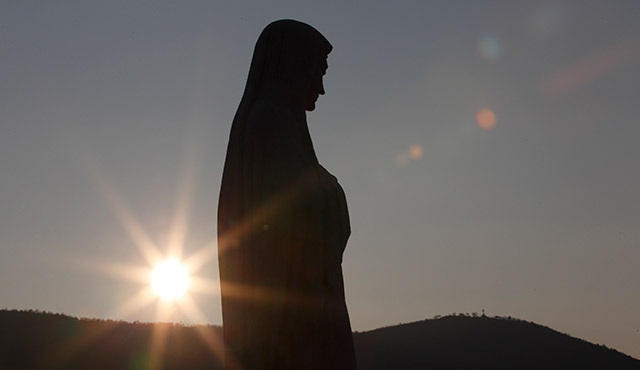Brothers and Sisters in Christ,
We just celebrated Mother’s Day, an opportunity for us all to give special attention to our mothers and to the women who have had a maternal influence in our lives. But above all, there is one woman who is mother to us all and Mother of God. You see, this is one of those big concepts that we take for granted. How can one woman, no matter how accomplished, be not only mother to all of humanity, but the mother of God?
In this first of two columns, we’ll consider Mary as the Mother of God. Volumes have been written over the Church’s 2,000-year history. Some might even find it overly ambitious to tackle this topic in a short column, but I want to start a conversation of sorts, something that encourages us all to study and pray together, particularly in this month of May, as we come to understand better these profound realities.
To begin, I look to Jacques-Bénigne Bossuet, a 17th-century French bishop and theologian, who offered many simple, but intriguing, reflections in his book “Meditations on Mary.” His lifetime, although separated from ours by four centuries, faced many of the same challenges we encounter today.
We have to begin to understand how a woman, a human being created by God, just like the rest of us, could be His mother when He has existed from all time and she was only born long after He created the universe. Good question.
The most obvious consideration is that God chose to become man. As a human being, He had to have a mother – He was like us in all things but sin. (Heb 4:15) Even though some areas of science are desperately trying to change this, no one comes into existence without a mother and a father.
Bossuet used the idea of a dispensation to explain how Mary could be excused from the penalty of death so that she could become the mother of God. A dispensation can’t be used if the person is not worthy, but Mary was worthy. The Old Testament presents us with one person after another who struggles with God’s commands, much as we do every day. There was no one in the Old Testament who showed the same willingness as Mary (cf Luke 1) to accept God in a most profound way, even if it seemed impossible to the world. Mary is the first and last person capable. Because of this, she was even necessary for the Incarnation. Without her consent, the Incarnation could not have happened.
As Bossuet notes, Mary “gave birth to the giver of grace.” And, yet, her son existed before she did. She is “full of grace” because her son, “the dispenser of grace, gave it to her abundantly.” Since He existed from all time, He did not have to wait to give her this grace, He was able to do it immediately, when she was conceived without sin. And so, He loved her before she even existed.
There’s the saying that we can’t give what we don’t have. Mary could not give birth to Christ if she was not like Him, namely without sin. Yes, understanding this causes us to stretch our minds a bit. But think of it in Bossuet’s terms, “Only God and Mary can have the Savior for a son.”
You see, her maternity is real. At times when this teaching has been challenged, sacred art has reflected the reality that we believe. That’s why we see images of Mary nursing her child or otherwise emphasizing her bosom, depictions that would have been almost scandalous in sacred art. In fact, many are still scandalized. But we need only to look at the Cross to see another scandal that is meant to awaken us to reality. In the case of Mary, she is not the adoptive mother of Jesus, nor a surrogate of some sort. She truly is His mother, which makes her the mother of God.

